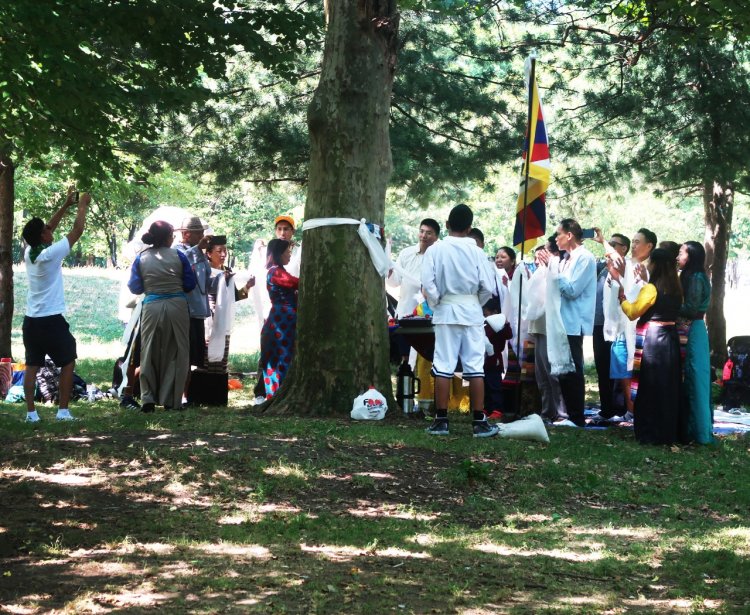Rewards Offered by Chinese Police for Providing “state security crime” Tip-Offs

12.07.2022
Fleur Harmsen
Tibet and Human Rights Researcher,
Global Human Rights Defence.
On July 4th 2022, Chinese officials announced that they would increase surveillance practices on the Tibetan plateau through offering between 3,000 and 300,000 Yuan to any Tibetan who offers tip-offs on so-called “crimes against state security” (Tibetan Review, 2022). The latter was announced just two days prior to the 87th birthday of Tibet’s exiled spiritual leader, the Dalai Lama in order to restrict celebratory practices.
Activities that are considered to amount to “crimes against state security” are seen to be directly related to Tibetan activism and cultural life. Practices such as speaking or reading foreign newspapers about the Dalai Lama, expressing opinions regarding Tibetan culture through writing, filming, speaking or wearing flags as well as purchasing souvenirs are seen to amount to such a crime.
In the Himalayan region, Chinese authorities made all inhabitants attend state organized meetings to warn Tibetans not to share any kind of information regarding the celebration of the Dalai Lama’s birthday and that their cellphones will be checked afterwards. Similarly, new checkpoints have been erected to allow a thorough check on all individuals moving within the Tibetan plateau and to facilitate spying activities of families in the region.
The increase in surveillance practice amounts to numerous violations of international law enshrined in the Universal Declaration of Human Rights (UDHR) and the International Covenant on Economic, Social and Cultural Rights (ICESCR). Firstly, article 19 of the UDHR stipulates that all individuals have the right to freedom of opinion and expression. These rights are to be enjoyed without interference of State authorities and must guarantee the ability to receive information and ideas through any media regardless of frontiers. Chinese authorities, through rendering writing, filming, speaking and expressing opinion regarding Tibetan cultural life a crime against state security blatantly violates article 19 of the UDHR.
In addition, Article 12 of the UDHR writes that all individuals will be free from state interference in their family life, privacy, home or correspondence. The construction of checkpoints to facilitate spying on families and checking of travelers violates article 12 of the UDHR as such actions directly interfere with the privacy and family life of those individuals subjected to such treatment.
Lastly, article 2 of the ICESCR states that the rights enshrined in the Covenant will be exercised without discrimination of any kind. However, the targeting of Tibetan cultural life violates article 15 of the ICESCR guaranteeing that all individuals are free to partake in the cultural life and that the State must take the necessary steps to ensure the full realization of that right through conserving and developing the cultural practices of that region.
Sources and further reading:
Kunchok, S. (2022, July 6). Tibetans skirt tight Chinese surveillance to mark the Dalai Lama’s 87th birthday. Radio Free Asia. Retrieved July 12th, 2022 from: https://www.rfa.org/english/news/tibet/dalailama-birthday-07062022204123.html
Tibetan Review. (2022, July 9). Lhasa police offering up to nearly US$45,000 rewards for ‘state security crime’ tip-offs. Retrieved July 12th, 2022 from: https://www.tibetanreview.net/lhasa-police-offering-up-to-nearly-us45000-rewards-for-state-security-crime-tip-offs/




 GHRTV
GHRTV 




























